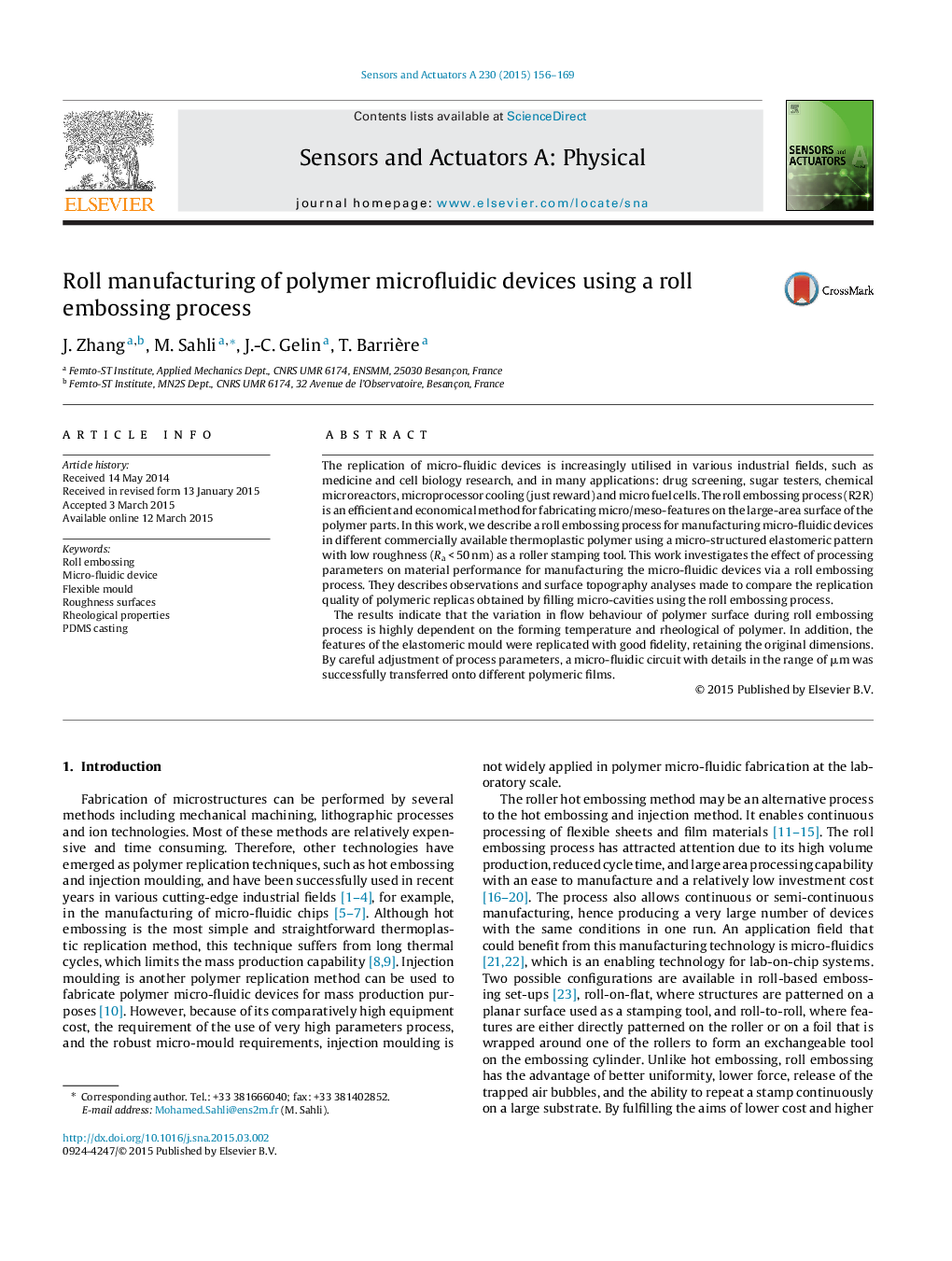| Article ID | Journal | Published Year | Pages | File Type |
|---|---|---|---|---|
| 736914 | Sensors and Actuators A: Physical | 2015 | 14 Pages |
•Promising and cost-effective method for the continuous duplication of flexible devices.•Influence of process parameters on replication quality with micro-scaled feature sizes.•Process reliability and potentialities of replicating surface with complex topography.
The replication of micro-fluidic devices is increasingly utilised in various industrial fields, such as medicine and cell biology research, and in many applications: drug screening, sugar testers, chemical microreactors, microprocessor cooling (just reward) and micro fuel cells. The roll embossing process (R2R) is an efficient and economical method for fabricating micro/meso-features on the large-area surface of the polymer parts. In this work, we describe a roll embossing process for manufacturing micro-fluidic devices in different commercially available thermoplastic polymer using a micro-structured elastomeric pattern with low roughness (Ra < 50 nm) as a roller stamping tool. This work investigates the effect of processing parameters on material performance for manufacturing the micro-fluidic devices via a roll embossing process. They describes observations and surface topography analyses made to compare the replication quality of polymeric replicas obtained by filling micro-cavities using the roll embossing process.The results indicate that the variation in flow behaviour of polymer surface during roll embossing process is highly dependent on the forming temperature and rheological of polymer. In addition, the features of the elastomeric mould were replicated with good fidelity, retaining the original dimensions. By careful adjustment of process parameters, a micro-fluidic circuit with details in the range of μm was successfully transferred onto different polymeric films.
